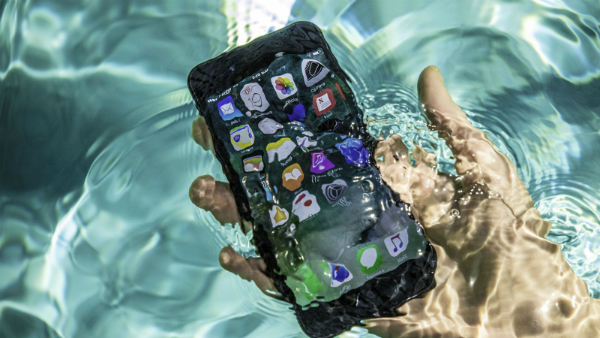Last Updated on May 13, 2021 by Rupesh Patil
You think of waterproof phones and the first thing to cross your mind is taking it into a bathtub or to take underwater photos or just being carefree during rains. However, waterproof phones are actually water-resistant and not exactly waterproof. Brands like Apple, Samsung and Sony started the trend of waterproof phones, all carrying an ‘IP (Ingress Protection) rating’ and now they’re all the rage. Not sure what exactly does ‘IP rating’ and the like mean? We tell you all about it.
IP Rating in Smartphones
Subscribe to Onsitego
Get the latest technology news, reviews, and opinions on tech products right into your inboxIP rating (also called IP code) is an international standard for measuring the phone’s levels of protection against dust and water. In an IP rating the first number always refers to dust protection, while the second to water resistance. For instance, a rating of IP54 would mean a dust protection rating of 5 and a water resistance rating of 4.
Water Resistance by IP Levels
5 = Protected from jets of water, like holding it up the tap in your kitchen sink.
6 = Protected from more powerful water jets and dust tight
7 = Survives being submerged in water up to 1 meter deep (normally for 30 minutes)
8 = The phone has been tested at depths more then 1 metre, and found to be unharmed
IP Ratings Decoded
IP68 Certified: The maximum IP rating that a device can have is IP68. This is completely dust proof and is protected against water to depths of up to 1.5 meters for nearly 30 minutes. In some cases, waterproofing means, ‘some’ water can penetrate, but without harming the device. Also, IP rating for waterproof phones are specified only for fresh water that include rain water, lake water, river water etc. And it’s also not applicable for saline water. The Galaxy S7 and S7 Edge are the two most popular phones currently with an IP68 rating. Samsung Galaxy Note 7, Sony Xperia Z3, Xperia M4 Aqua and HTC Desire Eye are a few more in this category.
IP67 Certified:
IP67 certification denotes that the phones are fully protected against dust ingress and can stay underwater for up to 30 minutes in 1 meter of depth. So whether you dive in a pool with your iPhone 7 or 7 Plus or accidently drop it in the bathtub, you need not worry! There are greater chances that your iPhone will work just fine, after all its IP67 certified! Not to forget, how Apple crazily advertised the iPhone 7 and 7 Plus for being splash, dust and water-resistant. Apart from the iPhone 7 and 7 Plus, Samsung Galaxy S5, Moto G Turbo and Sony Xperia Go too are fall under this category.
IP65, IP53 Certified:
The Sony Xperia Z5 has both IP68 and IP65 rating. IP68 rating means it can survive being submerged, while IP65 denotes that it’s also good at handling spray. Technically, it’s tested using water being projected by a 6.3mm nozzle. In real world use though, it just means it can survive the rain, or the shower. Just don’t go spraying it with a pressure washer. HTC 10 is an example has IP53, which means it’s somewhat protected against dust, but not totally, and can live with spraying water, but not jets of water and certainly not being submerged.
Things to Keep in Mind
- Most resistance testing is performed in fresh water. Devices aren’t guaranteed to hold up to salt water, unless specifically stated from the manufacturer.
- While showering with IP-rated devices isn’t recommended, the device won’t break if you forget to take it off. The device could begin to leak and become damaged with continued exposure however, and water damage may not be covered under the warranty.
- Unless otherwise specified, most tests are carried out at temperatures between 15 and 35 degrees Celsius. (60 to 95 Fahrenheit). Higher temperatures in places like saunas, steam rooms and hot tubs could damage the device.
- Unless otherwise stated by the manufacturer, you should avoid pressing buttons on the device while it is underwater. This could allow water to enter into the casing and damage the phone.
- Make sure the phone is completely dry before charging it.
- Make sure you do some research about the IP rating of the phone online before you buy the phone.
Waterproof phones are also not covered in the manufacturer’s warranty period, which means if your phone is over-exposed to water, you will need to pay from your pocket to get it fixed. This is a good enough reason to buy the Damage Protection Plan. It’s a great mobile phone warranty plan that can give your phone an extended life and will take care of all the physical and liquid damage caused to your phone. Lastly, our advice is: Always keep your phone dry. IP protection is nice to have but there’s no protection quite like keeping it out of the water in the first place.



Discussion about this post